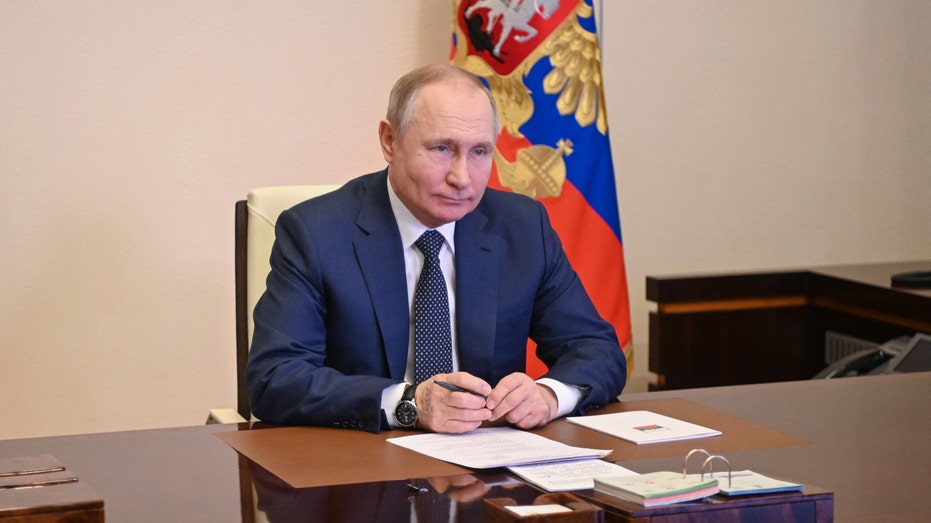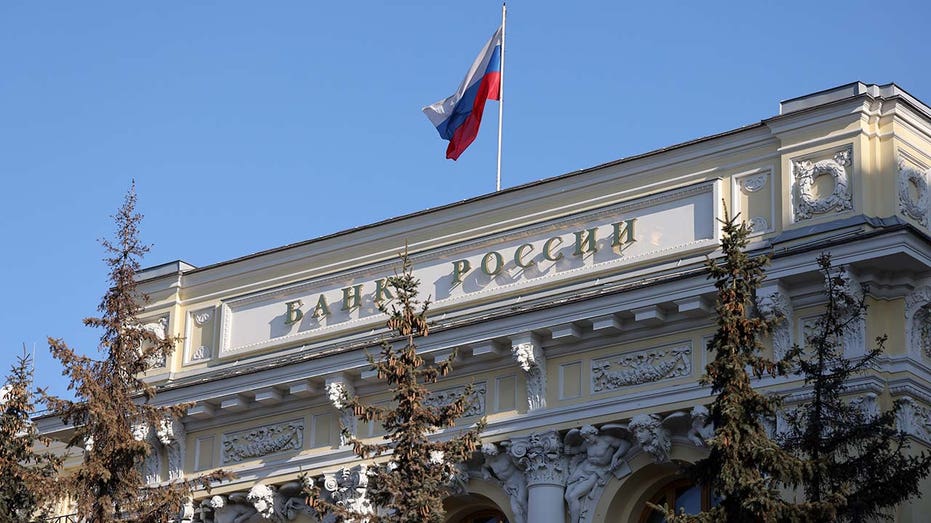Ukraine Russian war creating 'huge supply shock': World Bank president
World Bank president on Russian-Ukraine war: ‘Huge supply shock’ going on
World Bank President David Malpass says the U.S. and Europe has put in ‘strong sanctions,’ and it impacts world oil trade and food.
Russia’s invasion of Ukraine is creating a "huge supply shock" that will impact world oil and food, World Bank President David Malpass warned Friday.
"The U.S. has put in strong sanctions, Europe has put in strong sanctions, and it affects world oil trade and also… food trade, which is so important — both Russia and Ukraine were big providers of food," Malpass told "Cavuto: Coast to Coast."
"Now as banks stop working with Russia, then it changes the trade lines going on. China may be able to make up for some of that… they buy some of the oil, some of the wheat from Russia, but… for the total world, it's a huge supply shock that's going on."
SWISS ADOPT NEW EU SANCTIONS ON RUSSIA
Sanctions having ‘immense’ impact on Russia: World Bank president
World Bank President David Malpass, in a wide-ranging interview on ‘Cavuto: Coast-to-Coast,’ provides insight into the Russia-Ukraine conflict.
Malpass’ comments come amid a wave of global sanctions that have disrupted the operations of multinational corporations in Russia, throwing its economy into turmoil.
Russia has experienced economic challenges "over decades," Malpass said, and global sanctions will have an "immense" impact on the country’s interaction with world financial markets, including their dependence on China.
Malpass noted there are several operations underway by "very sophisticated" central banks, including Russia, to adjust to the sanctions.
"This is the first time that a G20 central bank, a group of 20 major nations' central bank, has been sanctioned in this way. So it's very powerful," he remarked.
Russian President Vladimir Putin attends a flag raising ceremony via a video link at a state residence outside Moscow. (ALEXEY NIKOLSKY/SPUTNIK/AFP via Getty Images / Getty Images) "What we've done is stopped all operations in Russia, also in Belarus… Is this having an impact on Russia? I think it's having an immense impact on Russia and on Russians — both the sanctions, also the weakness in devaluation of the ruble — these hit people hard." Cavuto asked if the global financial community will continue to take actions against Russia after the war in Ukraine ends. The World Bank president said there’s a "global outpouring in favor of Ukraine" that will have "lasting consequences, whatever the outcome of the war." He added an important factor is how China will react to Russia’s invasion of Ukraine. "I think as you look at the situation, China itself has to be horrified at where this is developing. That will be an important issue in how world trade develops," Malpass concluded. "[China] buy[s] oil from Russia when the sanctions are in place, but…can their companies really remain part of the world system when they're so engaged with Russia? We'll have to see how that evolves for China. That's an important issue for the world." Malpass emphasized his main focus is helping Ukraine and how the World Bank can provide financing to those impacted by President Vladimir Putin’s continuous attacks. He was scheduled to speak with Ukrainian President Zelenskyy Friday afternoon. A Russian national flag above the headquarters of Bank Rossii, Russia’s central bank, in Moscow, Russia, on Monday, Feb. 28, 2022. Photographer: Andrey Rudakov/Bloomberg via Getty Images (Photographer: Andrey Rudakov/Bloomberg via Getty Images / Getty Images) CLICK HERE TO READ MORE ON FOX BUSINESS "The direct food and gasoline supplies and so on are… still making their way across the border. As far as financing, we're still operating with the Finance Ministry… with the central bank and very closely with the IMF on this," he said. "My understanding is there is still a substantial need in Ukraine for grants now, and for financing for payment of the ongoing… ‘war effort,’ the ongoing development effort and food and medicine efforts that they need to do as a government." Source: Read Full Article



